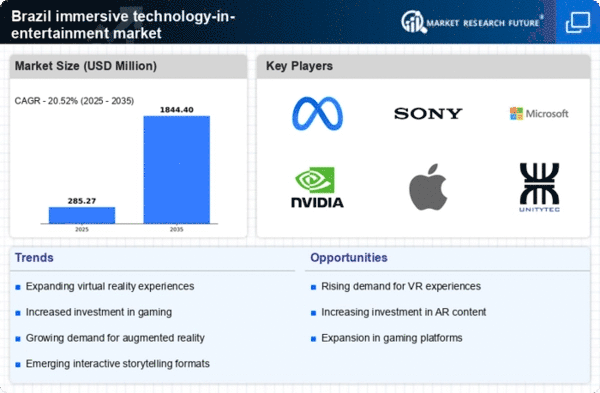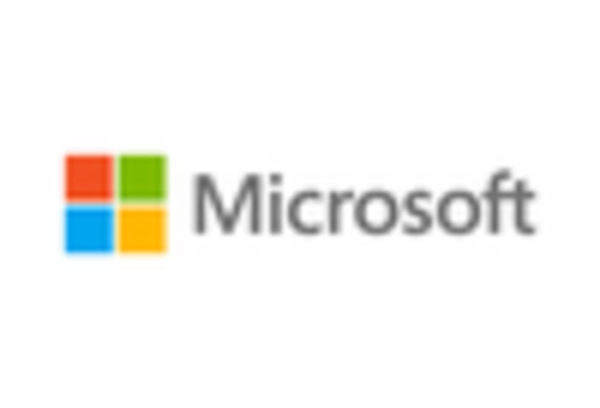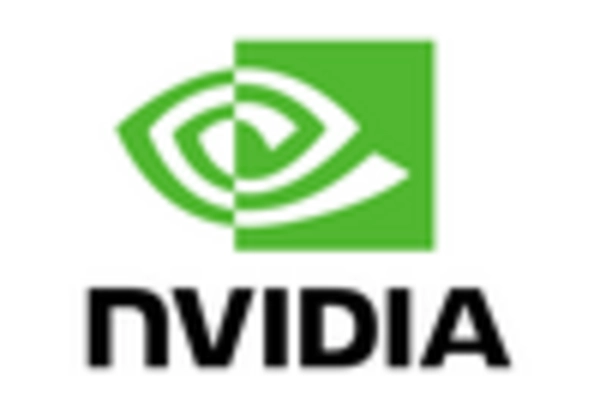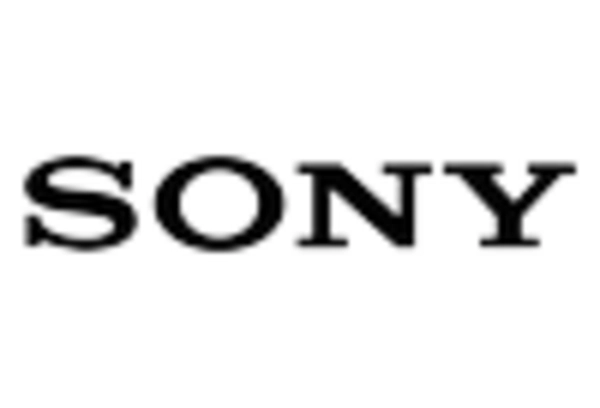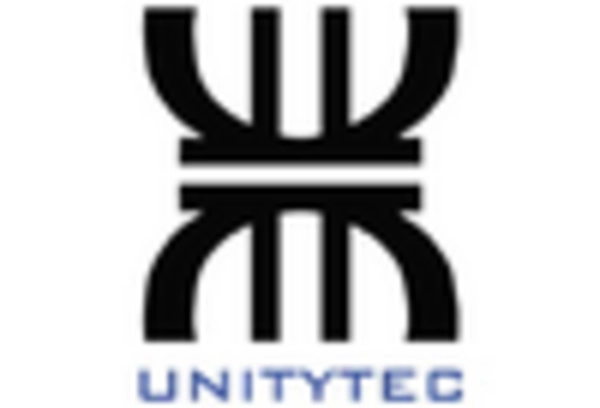Rise of E-Sports and Gaming Culture
The burgeoning e-sports and gaming culture in Brazil significantly impacts the immersive technology-in-entertainment market. With millions of gamers actively participating in competitive gaming, there is a growing appetite for immersive experiences that enhance gameplay. The integration of VR and AR technologies into gaming is becoming more prevalent, with the market for gaming-related immersive technologies expected to exceed $800 million by 2025. This trend indicates a shift towards more interactive and engaging gaming experiences, which could potentially redefine entertainment consumption patterns in Brazil.
Growing Demand for Immersive Content
There is a notable increase in consumer demand for immersive content within the entertainment sector in Brazil. As audiences seek more engaging and interactive experiences, content creators are compelled to innovate. The immersive technology-in-entertainment market is witnessing a shift towards storytelling that incorporates VR and AR elements, enhancing emotional connections with audiences. Reports suggest that immersive content consumption in Brazil could grow by over 30% annually, reflecting a significant trend. This demand is further fueled by the rise of platforms that support immersive experiences, thereby creating a vibrant ecosystem for creators and consumers alike.
Cultural Integration and Localization
Cultural integration and localization are pivotal in shaping the immersive technology-in-entertainment market in Brazil. As content creators strive to resonate with local audiences, there is a growing emphasis on incorporating Brazilian culture, traditions, and narratives into immersive experiences. This approach not only enhances relatability but also fosters a sense of community among users. The market is likely to see a rise in localized content, which could account for a significant portion of the overall market growth, potentially reaching 40% of total immersive content by 2026. This trend underscores the importance of cultural relevance in driving consumer engagement.
Technological Advancements in Hardware
The immersive technology-in-entertainment market in Brazil is experiencing a surge due to rapid advancements in hardware. Innovations in virtual reality (VR) headsets, augmented reality (AR) devices, and motion capture technologies are enhancing user experiences. For instance, the introduction of high-resolution displays and improved tracking systems has made immersive experiences more accessible and engaging. As of 2025, the market for VR headsets alone is projected to reach approximately $1.5 billion in Brazil, indicating a robust growth trajectory. This technological evolution not only attracts consumers but also encourages content creators to develop more sophisticated applications, thereby driving the overall market forward.
Investment in Entertainment Infrastructure
Brazil's commitment to enhancing its entertainment infrastructure plays a crucial role in the growth of the immersive technology-in-entertainment market. Investments in state-of-the-art venues, such as theaters equipped with immersive sound systems and visual technologies, are becoming increasingly common. The government and private sectors are collaborating to create environments conducive to immersive experiences, which could lead to a projected increase in market value by 25% over the next five years. This infrastructure development not only supports local artists and creators but also attracts international productions, further enriching the market landscape.


